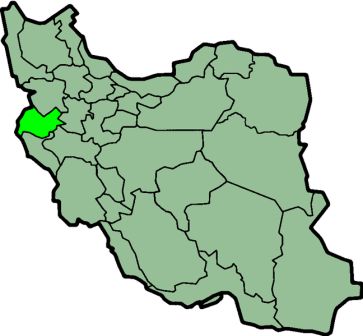
The Public Relations Office of the Research Institute of Cultural Heritage and Tourism (RICHT), quoted Iraj Rezaei, head of the archeological team, as saying that for a couple of years the plan to divert Sirvan River towards the fertile plain of Zahab in the border city of Sar Pole Zahab is underway and the project is approaching its final stages.
He stated that implementation of the irrigation network has been inevitable and finally led to the emergence of a massive development in the agricultural sector of the region and the city and will cause increase in the surface of the water cultivation and consequently increased production.
Rezaei referred to the probing projects to determine the limits and propose the privacy of Tappeh Karim, and said the project has been implemented as part of the plan for cultural heritage studies in the neighborhood of the tropical scheme.
According to the archaeologist, cultural works dating back to the Halaf and Ubaid pre-historical period have been discovered in the ancient hill which mainly include pieces of pottery.
The ‘Halaf Culture’ is the name of a pre-historic period in the Near East which continued from about 6100 up to 5500 BC. The culture mainly settled in southwest Turkey, Syria and north of Iraq up to the southwestern areas in Iran although works of this culture have been found throughout Mesopotamia.
The Ubaid Period (about 6500 to 3800 BC) is a pre-historic period in Mesopotamia. This period in the south of Mesopotamia is the first known period at the alluvial level although there might be the possibility of the existence of previous under-alluvial periods.
9376**2050
Follow us on Twitter @IrnaEnglish
 solhkhabar | Peace International News Agency Peace International News Agency , Peace News , International Agency News of Peace
solhkhabar | Peace International News Agency Peace International News Agency , Peace News , International Agency News of Peace